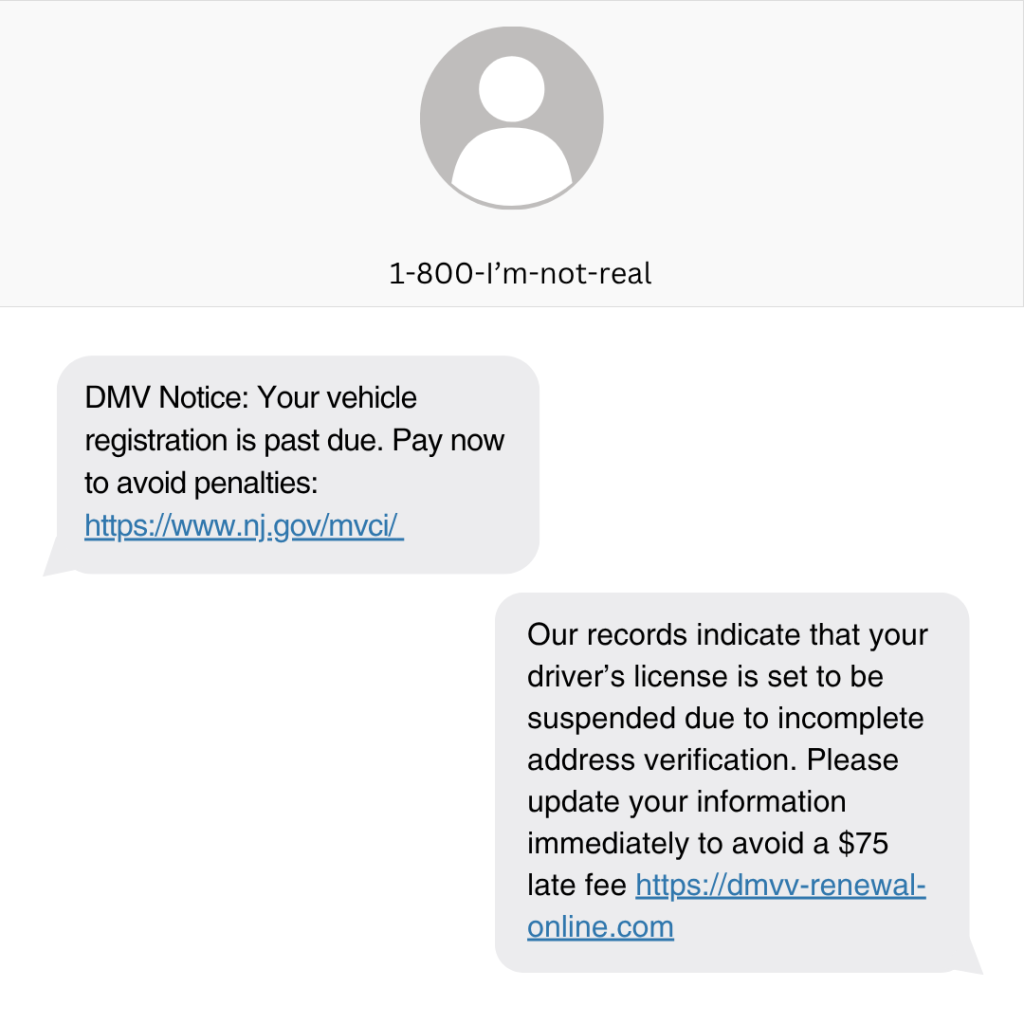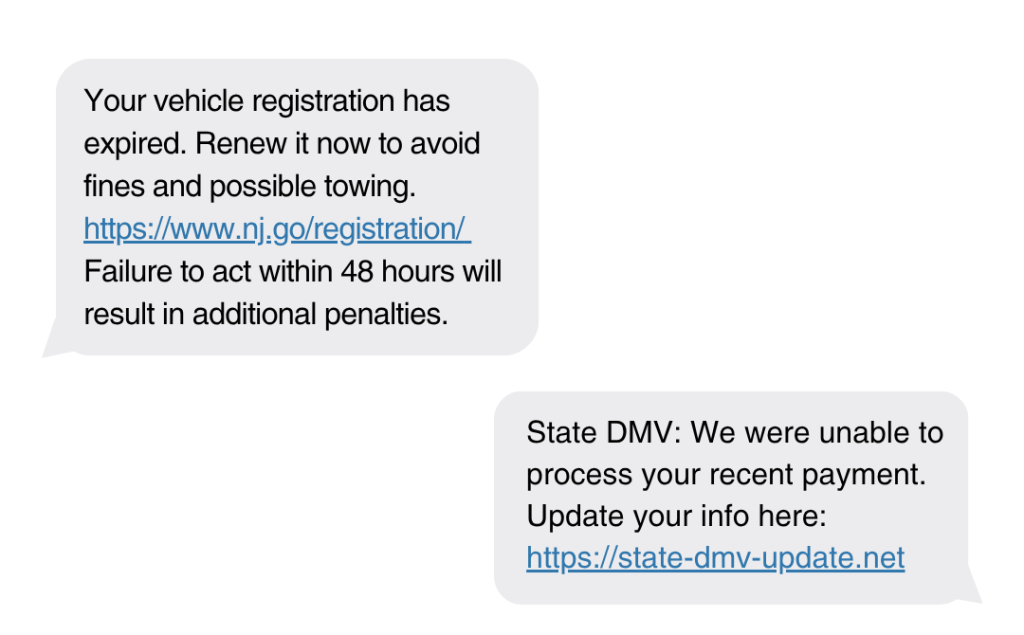What Is the DMV Scam?
The DMV is a trusted government agency, so when you get a message from them, it’s natural to want to act quickly. After all, things like driver’s license renewals and vehicle registrations are important—and sometimes time-sensitive. But scammers are taking advantage of this trust. They’re sending fake texts, emails, and even creating websites that look just like the real DMV, hoping you’ll react fast without double-checking.
This scam is pretty new but already causing a lot of confusion. The scammers often claim your license is expiring, your registration is overdue, or you owe a fine that needs to be paid immediately. Their goal? To trick you into handing over personal info like your Social Security number, driver’s license details, or credit card info by asking you to pay fake fees.
Because the DMV is trusted, many people respond quickly—and that’s exactly what scammers are counting on.
Have You recieved these Texts?
The most common way scammers are reaching people right now is through text messages. They use urgent, alarming language to create panic and pressure you into acting quickly. Below are some examples of the types of texts our clients specifically have been reporting as part of this DMV scam:



Some common signs that a DMV message or website may be a scam…
Urgent language like “immediate action required” or threats of suspension
Requests for payment through unusual methods (gift cards, wire transfer, or prepaid cards)
Misspellings, bad grammar, or inconsistent formatting in emails or websites
URLs that don’t match your state’s official DMV website or lack
.govdomainsUnsolicited contact—if you didn’t expect the message, be suspicious
- Always go directly to your state’s official DMV website by typing the URL yourself. Don’t click links from emails or texts unless you’re sure they’re legitimate.
Verify messages by calling the DMV directly. If you receive a suspicious notice, contact your DMV office to confirm.
Never provide personal or payment information through links in unsolicited messages.
Use secure, private internet connections—avoid public Wi-Fi when handling sensitive info.
Keep your computer and mobile devices updated with the latest security software.
Report any suspicious DMV scams to your state DMV and the Federal Trade Commission (FTC)
Scammers don’t just target individuals—they also go after families, especially older adults or anyone who might be less familiar with digital scams. Protecting your loved ones starts with open communication and education. Here’s how you can help keep your family safe:
- Explain the scam: Start by explaining the DMV scam in simple terms. Let family members know that scammers are sending fake texts and emails pretending to be the DMV, asking for personal info or payments. Emphasize that real DMV notices don’t pressure you to pay immediately or use unusual payment methods like gift cards.
- Share the common signs of scams: Help your family recognize red flags such as urgent language, suspicious links, and requests for payment
- Show them how to verify messages: Teach family members to always verify messages by going directly to the official DMV website
- Be patient: Offer support without judgment and keep the conversation ongoing
This scam is just one example of how scammers are exploiting trusted government services to steal your identity and money. By staying vigilant, knowing what to look for, and verifying information through official channels, you can protect yourself and your family from falling victim.
If you’re ever in doubt about a DMV message or website, don’t hesitate to reach out directly to your state’s DMV office. When it comes to scams, it’s always better to be safe than sorry Contact CATS Technology with any questions or concerns.





